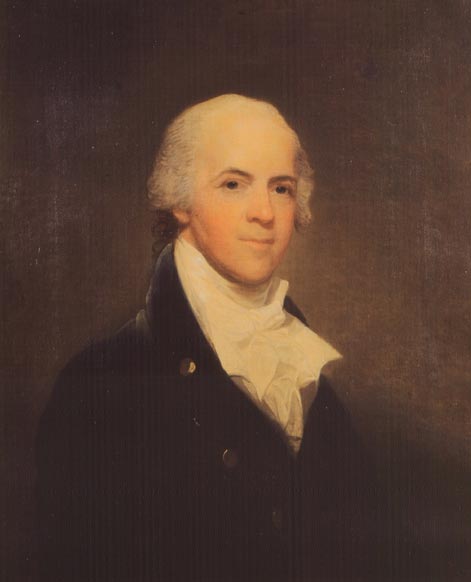In Washington City, President Jefferson‘s request to fund what would become known as the Lewis and Clark Expedition is referred to a three-member Senate committee. Committee member George Logan would ardently support the expedition to the Western Ocean.
Referred to Committee
The Senate resumed the consideration of the confidential Message of the President of the United States, communicated on the eighteenth instant, and
Ordered, That it be referred to Messrs. NICHOLAS, JACKSON, AND LOGAN, to consider and report thereon.[1]Annals of Congress of the United States, 7th Congress, 2nd Session (Washington: Gales and Seaton, 1851) 12:27 retrieved from … Continue reading
George Logan
George Logan, the master of Stenton was a persistent pursuer of peace and lifelong observant Quaker, though expelled from meeting in 1791 because of his captaincy in a militia cavalry unit. In 1802 George Logan had finished his first year as a United States Senator and had figured in the history of the Expedition by his membership on the three-man committee that approved Jefferson’s request for funds. He was then famous—or infamous—for an unofficial peace-mission to France that attached his name to a Congressional Act prohibiting such action (now codified as 18 U.S.C. 1953).[2]The “Logan Act” made unlawful the personal diplomacy Logan had presumed to attempt. The Act reads in part: “Any citizen of the United States . . . who, without authority of the … Continue reading
Notes
| ↑1 | Annals of Congress of the United States, 7th Congress, 2nd Session (Washington: Gales and Seaton, 1851) 12:27 retrieved from https://memory.loc.gov/cgi-bin/ampage?collId=llac&fileName=012/llac012.db&recNum=10. |
|---|---|
| ↑2 | The “Logan Act” made unlawful the personal diplomacy Logan had presumed to attempt. The Act reads in part: “Any citizen of the United States . . . who, without authority of the United States, directly or indirectly commences or carries on any correspondence or intercourse with any foreign government or any officer or agent thereof, with intent to influence the measure or conduct of any foreign government or of any officer or agent thereof, in relation to any disputes or controversies with the United States, or to defeat the measures of the United States, shall be fined under this title or imprisoned not more than three years, or both.” |
Experience the Lewis and Clark Trail
The Lewis and Clark Trail Experience—our sister site at lewisandclark.travel—connects the world to people and places on the Lewis and Clark Trail.
Discover More
- The Lewis and Clark Expedition: Day by Day by Gary E. Moulton (University of Nebraska Press, 2018). The story in prose, 14 May 1804–23 September 1806.
- The Lewis and Clark Journals: An American Epic of Discovery (abridged) by Gary E. Moulton (University of Nebraska Press, 2003). Selected journal excerpts, 14 May 1804–23 September 1806.
- The Lewis and Clark Journals. by Gary E. Moulton (University of Nebraska Press, 1983–2001). The complete story in 13 volumes.


